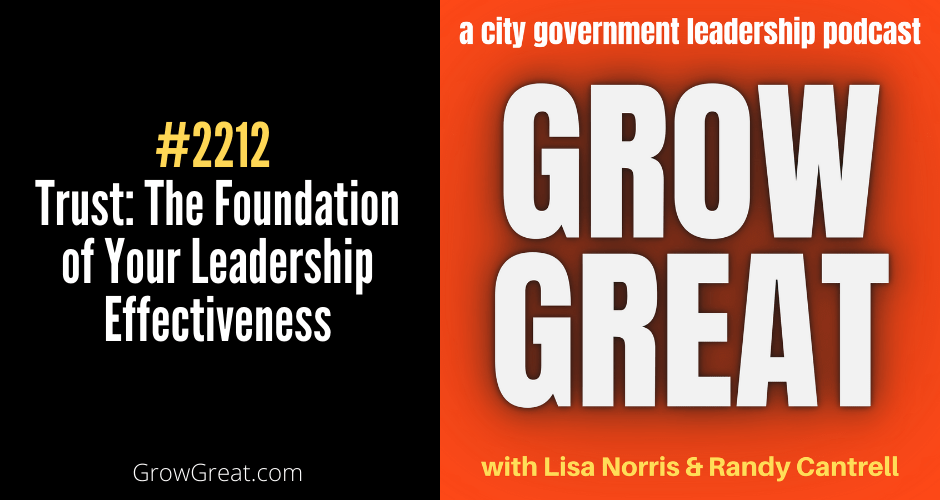Podcast: Play in new window | Download (Duration: 52:44 — 48.3MB)
Subscribe: Apple Podcasts | Spotify | RSS | More
A lack of trust is very evident. Nothing serves as a more solid footing for effective leadership.
What does it mean to trust? In a word, “confidence.” It’s an assurance we feel about somebody’s character, integrity, competence (ability), and honesty (truth).
Why don’t we trust? Because people, including us, sometimes prove we’re not what we claim. Leaders too often display incongruence – say one thing, do something different. Or contradict what they do and say.
For example, if a business owner constantly preaches that customers are important, but at every turn, he short-changes customers for the profit of the business, employees quickly learn “he doesn’t really value customers; he values profits more.” Employees won’t trust him.
That being said, most everyone has experienced a lack of trust and its impact. The organization, department, and team suffer. It creates distractions, prohibits creativity and innovation,
stifles communication, and team productivity, prevents relationship development and rapport, disengages team members; loyalty is lost.
“Without trust, we don’t truly collaborate; we merely coordinate or, at best, cooperate. It is trust that transforms a group of people into a team.”
– Stephen Covey
How do you build trust? Trust requires every leader to first be a good person. Not some of the time. All of the time.
Will others forgive us for our weaknesses? Yes, if we admit our wrong and fix it, then display behavior that shows we mean it. But otherwise, no.
Don’t blame shift or deflect. Own mistakes. You are REAL.
Great leaders who create and build trust don’t have to be perfect, but they must be willing to honestly own their errors.
Communicate well.
Be transparent. Genuine. Honest and open. Listen. Keep people informed.
Trust requires every leader to be quick to openly share information, as much as possible. They must also deftly be open and vulnerable when they can’t share information, or when sharing sensitive information might damage the employees or the culture. The great leader won’t lie, but will instead openly tell the employees that she’s going to keep the employees properly informed.
Be vulnerable. Trust requires leaders to be vulnerable. You’ve heard that in negotiations, the first to blink loses. Well, when it comes to trust, the first to show vulnerability earns the trust. That’s what great leaders do. They reveal more of themselves to show others the way. They LEAD by going first.
Accountability. Inspect what you expect.
Trust requires leaders to go the extra mile. The most trustworthy leaders undersell and overdeliver. Always. They don’t promise the moon, then fail to launch the rocket…which is far too common.
Keep their best interest at heart. Trust requires people to know you’ve got their best interests at heart – and that you’ll do whatever you can to help them succeed. That doesn’t mean the leader owns all the performances of the people, but it doesn’t mean she knows she’s responsible for it. And if people fail to perform, they know the leader will put in the work to help them fix it.
Also, if they neglect to do their part, the leader will protect the rest of the team – and the organization – by no longer allowing the chronic poor performers to remain on the team. Through trust, your team will follow you into the storm without hesitation.
High-performing team. High outcomes. Period.
Lisa & Randy
 About the hosts: Randy Cantrell brings over 4 decades of experience as a business leader and organization builder. Lisa Norris brings almost 3 decades of experience in HR and all things "people." Their shared passion for leadership and developing high-performing cultures provoked them to focus the Grow Great podcast on city government leadership.
About the hosts: Randy Cantrell brings over 4 decades of experience as a business leader and organization builder. Lisa Norris brings almost 3 decades of experience in HR and all things "people." Their shared passion for leadership and developing high-performing cultures provoked them to focus the Grow Great podcast on city government leadership.
The work is about achieving unprecedented success through accelerated learning in helping leaders and executives "figure it out."

